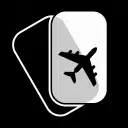Airbus vs Boeing Safety, According to a Private Jet Charter Company
TL;DR:
- Global airline safety is high, with 2023 as one of the safest years.
- Boeing and Airbus have strong safety records despite past incidents.
- Both companies continuously improve designs and prioritize passenger safety.
- Specific safety features vary across different models and manufacturers.
- Choosing the “best” aircraft depends on individual needs and preferences.
According to the International Air Transport Association (IATA), the global accident rate for major airlines has been steadily declining. In fact, 2023 was recorded as one of the safest years in aviation history.
Yet, the “Airbus vs Boeing safety” debate is still a hot topic.
Today, we’ll be using our expertise in the industry as a private jet charter company to explore this safety discussion. We’ll break down the safety features, design philosophies, and overall performance of these aviation giants.
Historical Overview: Boeing vs Airbus Safety
Both Boeing and Airbus have long, established histories in the aviation industry, each with a strong commitment to safety.
Sure, both companies have had their share of incidents and accidents over time. But that’s true of any industry, and the good news is that flying has gotten a lot safer over the years.
Boeing, famous for the 747 and 737, took a hit with the 737 MAX grounding, but they’ve been working hard to fix those issues. More recently, they’ve also had to deal with a door malfunction on an Alaska Airlines 737-900.
Airbus, known for the A320 and A380, has had its own bumps in the road, like production delays and labor issues.
In 2023, Boeing planes were involved in more U.S. safety incidents than Airbus, but it’s worth noting that they also have a larger fleet. In 2021, Airbus had a higher number of reported incidents.
While both companies have faced challenges, aviation safety is a constantly evolving field. Both Boeing and Airbus are committed to learning from their mistakes, improving their designs, and keeping passengers safe.
Narrow-body Comparison: Airbus A320 vs Boeing 737 Safety
The A320 and 737 are the backbone of many airlines’ short-to-medium haul fleets. Both offer strong safety features, but their designs differ:
Airbus A320 Family
- Fly-by-wire: The A320 was one of the first to use fly-by-wire tech, where computers help control the plane based on pilot inputs.
- Side-stick control: Airbus chose side-stick controllers over traditional yokes for better ergonomics and visibility.
Boeing 737 Family
- Conventional Controls: The 737 uses traditional controls, which some pilots prefer for their tactile feedback.
- Evolutionary Design: Boeing has evolved the 737 over decades, maintaining common features between models to simplify pilot training and maintenance.
Mid-size Comparison: Airbus A319 vs Boeing 737 Safety
The A319 and some variants of the 737 (like the 737-700) cater to similar markets, offering a slightly smaller capacity than their larger siblings.
Airbus A319
- Shared Safety DNA: The A319 uses the same safety systems and fly-by-wire technology as the A320 family, providing similar protection and handling characteristics.
- Shorter-Range: The A319 is built for shorter routes, which may reduce risks like fatigue-related errors found in long-haul flights.
Boeing 737 (737-700)
- Commonality: Pilots familiar with other 737 models can easily transition to the 737-700, potentially reducing training-related risks.
- Proven Design: The 737 series, even with its variations, has a long history and a solid safety record.

Wide-body Comparison: Airbus A330 vs Boeing 777 Safety
The A330 and 777 are the go-to planes for long-haul travel. Both are packed with safety features built for those extended journeys.
Airbus A330
- Reliable Design: The A330 has a long, reliable safety record and has been widely used by airlines for many years.
- Redundancy: Multiple systems and backups ensure continued operation even if failures occur.
Boeing 777
- Technological Innovation: The 777 is a leader in innovative features like advanced flight management and lightweight materials.
- Extended Range: The 777’s long range allows airlines to operate long-haul flights with fewer stops, reducing risks from multiple takeoffs and landings.
Jumbo Jet Comparison: Airbus A380 vs Boeing 777 Safety
Jumbo jets like the double-decker Airbus A380 and the massive Boeing 777 variants (Boeing 777X) present unique safety considerations due to their size.
Airbus A380
- Evacuation: Designed for rapid evacuations with numerous exits and wide aisles.
- Structural Integrity: The A380 is built to withstand extreme stresses and maintain safety during turbulence or other incidents.
Boeing 777 (777-9)
- Engine Power: The 777-9 has powerful GE9X engines that give it plenty of thrust for takeoff and climb, even when fully loaded.
- Technology: The 777-9 includes advanced safety features like enhanced flight controls and improved warning systems.
Your Safety Comes First
In the end, both Airbus and Boeing manufacture safe aircraft, and the “best” choice often depends on your specific needs and preferences.
If you’re looking to charter a private jet, our experts at Stratos Jets can help. Your safety is our top priority, and we’ll work with you to find the perfect aircraft for your journey.
Try our free private jet charter cost estimator and get personalized flight options today.
Are you ready to book your Geneva and Zurich charter flight yet?
Our friendly, expert air charter agents are here to answer questions or start your quote today. Don`t wait, call now and we'll get you on your way to your destination!
Call 888-593-9066











